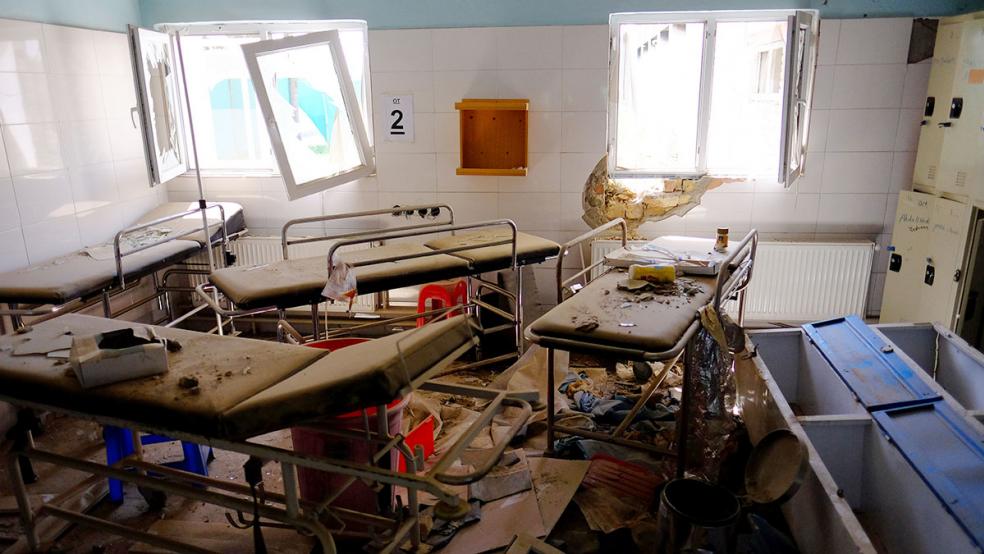The federal watchdog monitoring U.S construction projects in Afghanistan has documented enormous waste in the war-torn country over the last decade and a half, including U.S.-financed hospitals that somehow went missing, a single natural gas fueling station that cost $43 million, and luxurious villas that were built for the exclusive use of private security forces.
The latest report from the Special Inspector General for Afghanistan Reconstruction (SIGAR) examines the current state of $7.8 billion worth of U.S.-supplied vehicles and buildings constructed in the country since 2008 and finds that a significant portion is damaged, destroyed or being used for other purposes.
“Of the nearly $7.8 billion in capital assets reviewed in its prior reports, SIGAR identified about $2.4 billion in assets that were unused or abandoned, had not been used for their intended purposes, had deteriorated, or were destroyed,” the report says. “By contrast, SIGAR found that more than $1.2 billion out of the $7.8 billion in assets were being used as intended, and only $343.2 million out of the $7.8 billion in assets were maintained in good condition.”
For the most part, Afghan beneficiaries were unable to maintain the assets provided by the U.S. because they “lacked the resources or capabilities to do so,” the report says.
Rep. Stephen Lynch (D-MA), chairman of the House Oversight Committee’s Subcommittee on National Security, said the report “exposes serious gaps in planning and contract execution” in Afghanistan and called for better oversight to ensure that “U.S.-taxpayer resources” are not wasted.
“Today’s report from the Special Inspector General demonstrates that the United States has spent billions of taxpayer dollars on reconstruction projects that were either not needed or unwanted by the Afghan Government,” Lynch said in a statement Tuesday. “Similarly, many of the capital assets provided to the Afghan Government have already fallen into disrepair or have rapidly deteriorated due to the inability of the Afghan beneficiaries to maintain those assets.
No surprise? America and its allies have long overestimated the capabilities of the Afghan government and underestimated the extent of corruption in the country – a situation made worse by a tendency to throw money at problems with little or no follow-up, analyst Bill Roggio of the Long War Journal told the Associated Press. “[T]he West has wildly underestimated the impact of Afghan corruption and in many cases incompetence. It was always a recipe for failure,” Roggio said.
Torek Farhadi, a former Afghan government adviser, said the U.S. routinely operated without consulting local stakeholders, reducing the odds that a project would be successful. “Consult with the locals about their needs and sustainability of the project once the project is complete,” Farhadi told the AP, offering advice on how the U.S. could do better. “Supervise, supervise, supervise project progress and implementation and audit every single layer of expenditure.”




